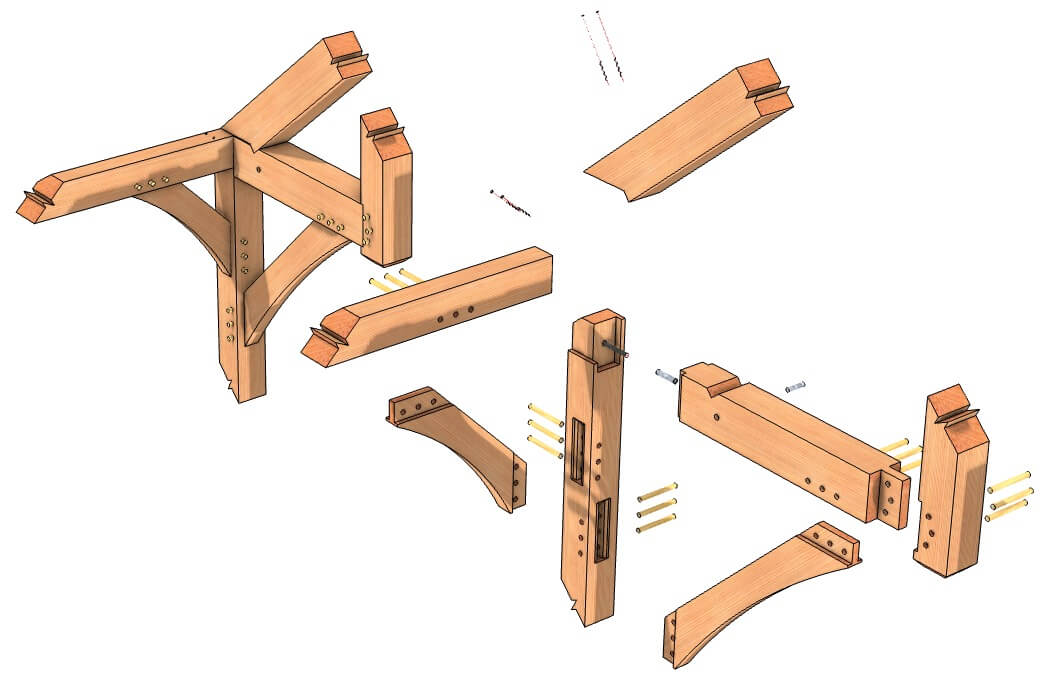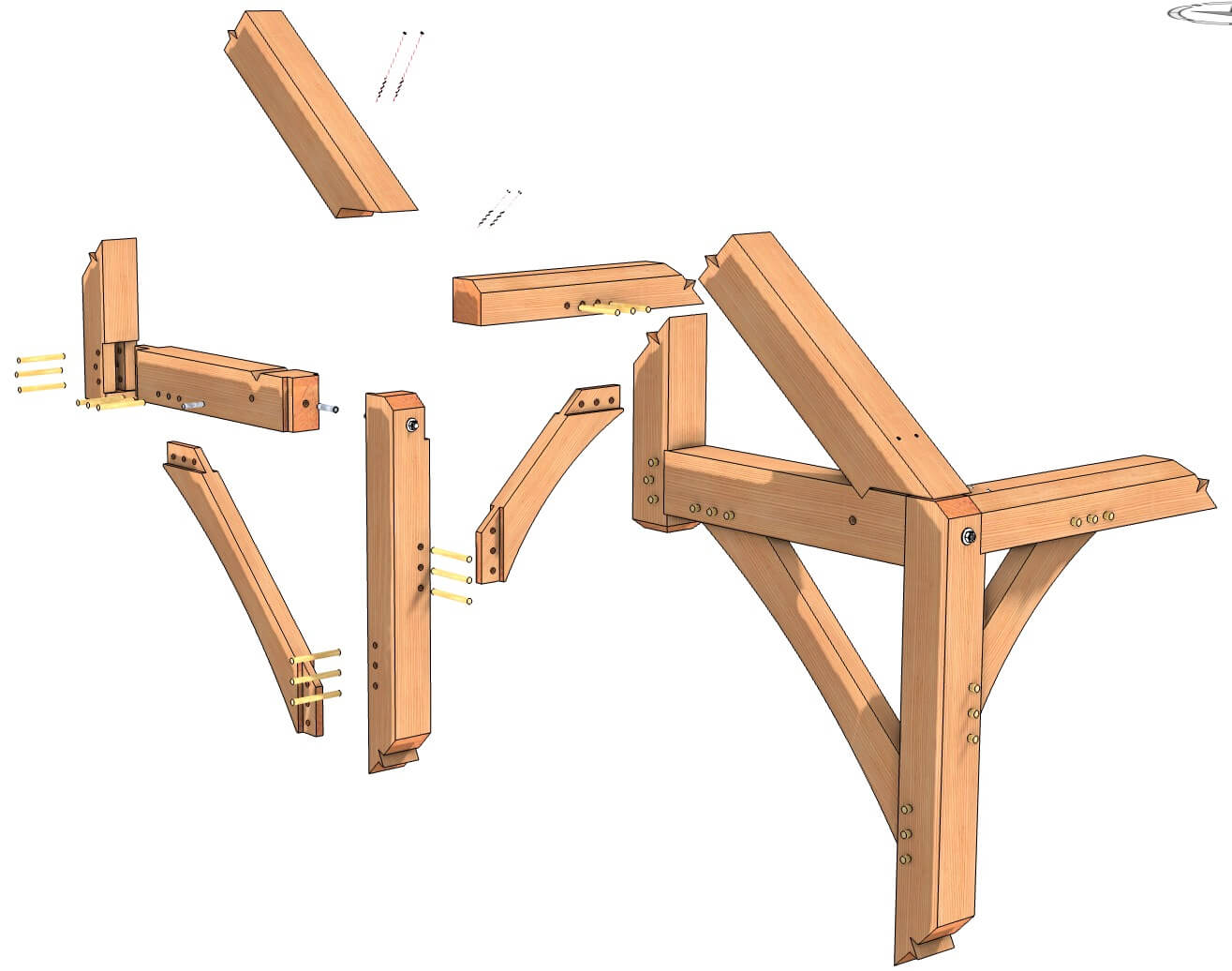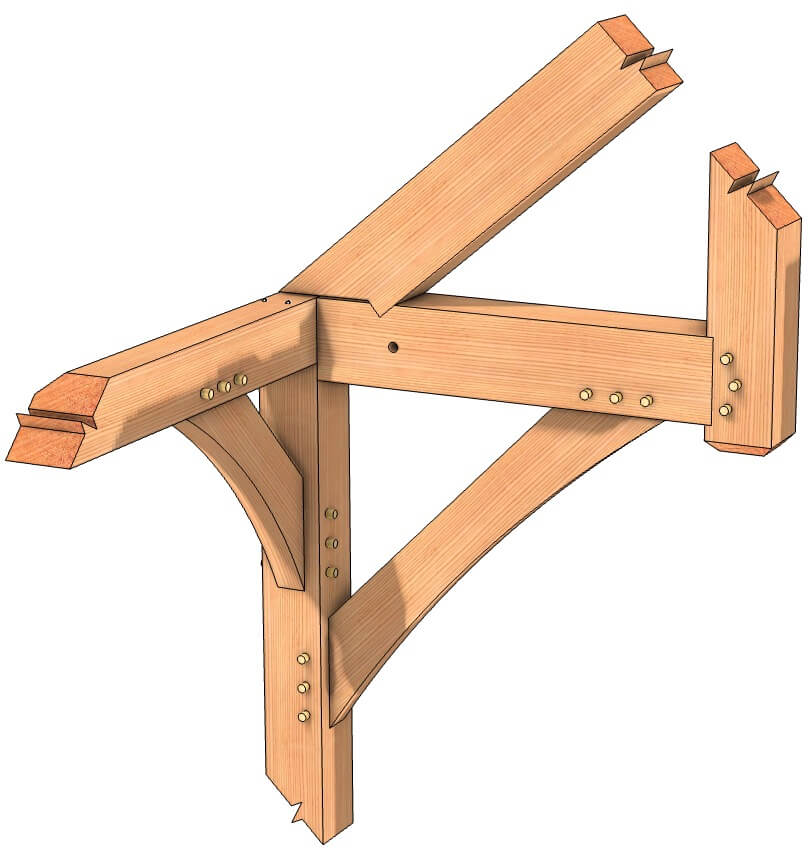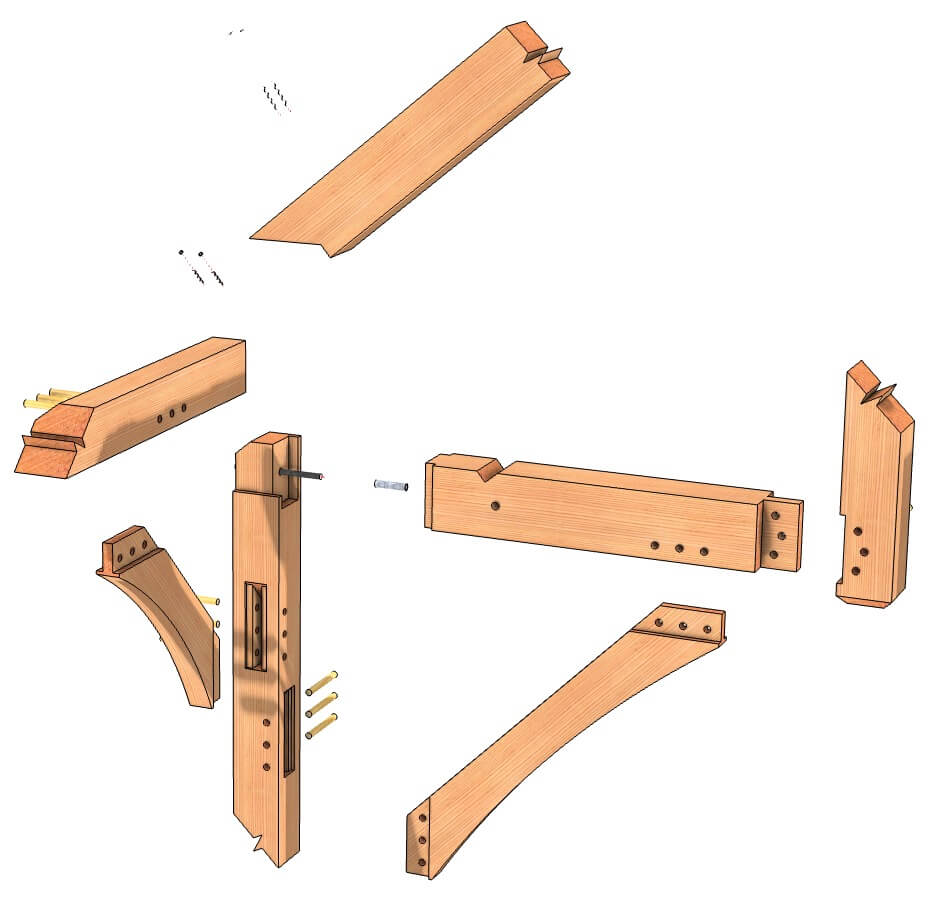
A hammer beam truss creates a lot of drama in a timber frame, and also causes some complex joinery. In this hammer beam eave detail we will show you one solution to the issue of several frame elements coming together in close proximity to each other. They all join up at the eave of the frame (in this case the eave does not overhang the wall but supports an unshown purlin roof system which does create an overhang).
The vertical post needs to house both the rafter (the diagonal timber) and the hammer beam (the horizontal timber). In order to accomplish this efficiently, the two tenons (the one for the rafter and the one for the hammer beam) share a housing in the post. The hammer beam continues out to a brace supporting a hammer post. Ideally with hammer beams you want a triangulation with the rafter, hammers, and collar so that the load gets transferred right down the roof slope.
The rafter and hammer beam tenons are secured into the post housing with hardwood pegs. The horizontal plate is housed into the post and secured from above with structural screws that are not visible from below.



In a series of these hammer beam posts, is there a better method of connecting the plate? There surely has to be.
We have one coming out next that will do just that. Stay tuned.
Hi
On the second drawing there looks to be a hex nut and washer with a bolt going vertically into the wood. Can you tell me what this fitting is please?
There looks to be another perpendicular hole further down, perhaps this is where it grips?
Thanks
It is a TimberLinx A475 connector.